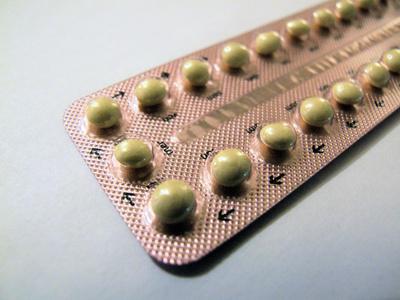Concerns about contraception do not go away as you enter the perimenopausal and menopausal years of your life. Surprise babies a bit later in life are not wholly uncommon. Managing birth control as you experience the symptoms of perimenopause and menopause can be challenging but also beneficial. The low doses of hormones provided by a modern low-dose pill can reduce your uncomfortable symptoms and prevent an unwelcome pregnancy.
Types
Contraceptives include barrier methods, chemical methods and hormonal contraceptives. Barrier methods and chemical contraceptives, including condoms, diagphragms and spermicides can be used throughout perimenopause and until menopause is complete. Hormonal contraceptives, like the pill, patch and vaginal ring, use estrogen and progesterone to stop ovulation, thicken cervical fluid and thin the uterine lining, according to Planned Parenthood.
Function
Hormonal contraceptives can do more than prevent an unplanned pregnancy. You are not safe from pregnancy during these years until you have gone a full year without a menstrual period, according to WomentoWomen.com. Low-dose birth control pills can allow you to avoid the irregular cycles and many of the hormonal discomforts of peri-menopause and menopause, including vaginal dryness and hot flashes. According to FamilyDoctor.org, low-dose pills, including Alesse and LoEstrin, may also reduce the bone loss that occurs during menopause.
Time Frame
You can choose to begin low-dose birth control pills to treat the symptoms of perimenopause and menopause at any time. If you are not having regular periods, your doctor can use a dose of Provera to trigger menstruation. You can take low-dose birth control pills until you are ready to switch to hormone replacement therapy or stop hormones altogether. Your doctor can test for follicle stimulating hormone to determine whether menopause is complete, according to FamilyDoctor.org.
Considerations
Low-dose birth control pills can prevent pregnancy, reduce the symptoms of perimenopause and menopause and even hide the signs of menopause, according to SPTimes.com. Consult your physician if you are concerned about whether menopause has begun or feel that it may be time to switch from the higher dose of hormones in a low-dose pill to a lower dose of hormone replacement therapy.
Warning
Hormonal contraceptives, particularly those containing estrogen, pose a risk of blood clots and strokes. This risk increases with age, and women over 35 who smoke should not take estrogen- and progesterone-based birth control pills. Choose a low-dose pill to reduce the risk of side effects, including serious side effects, according to SPTimes.com.
Photo Credit
- pillules image by Pascal P??chard from Fotolia.com





